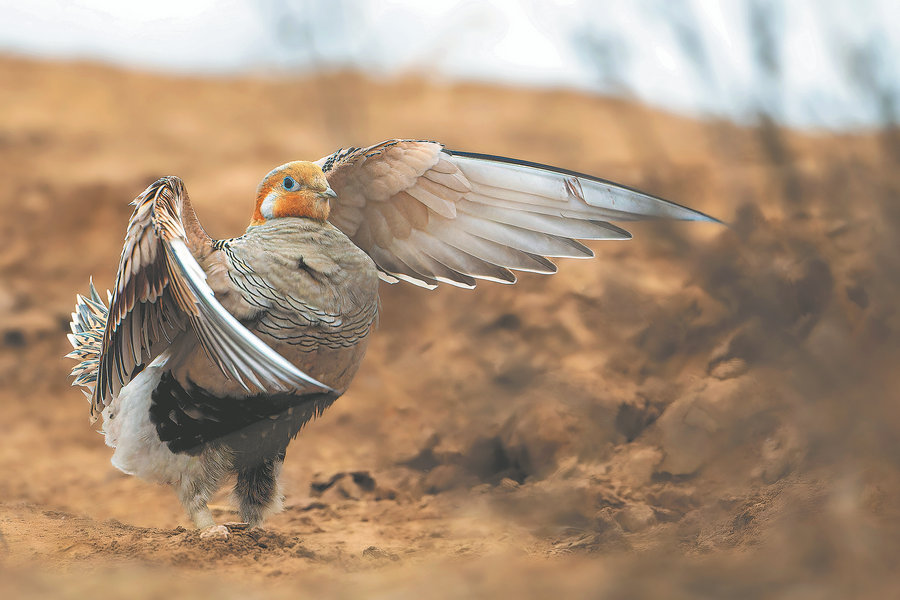

It has been one of the key activities of Beijing Feiyu to organize weekend guided birdwatching walks around some of the best-known hot spots, such as the Summer Palace, Beijing Zoo and the Olympic Forest Park, connecting the public with the natural world and the city's marvelous winged residents and visitors.
When Wu travels, he logs onto the website run by the China Bird Watching Record Center to stay updated on the latest sightings at his intended destination. "It's a delightful experience to go birdwatching with friends," he says.
"Of course, engaging in such an activity doesn't necessarily require a group. However, if you happen to share the same passion for birdwatching, why not do it together?" Wu and his friends also derive great pleasure from observing insects, clouds, and rocks during their birdwatching excursions.
"With just a little attention, we can easily discover that the biodiversity surrounding us exceeds our wildest imaginations," says Liu Huajie, a professor at Peking University who has been a passionate promoter of natural history for nearly 20 years.
Liu emphasizes that China has a profound natural history legacy, which can be observed through diverse sources such as herbal books, the Book of Songs, poetry from the Tang (618-907) and Song (960-1279) dynasties, and ancient paintings. However, amid the rapid development of modern society, Chinese education has somewhat overlooked the importance of "natural history", leading to a disconnection between individuals and the natural environment. Therefore, he advocates for the revival of natural history as a critical tool to assess educational systems influenced by modernity, which carry an inherent risk of alienating people from the natural world.
According to Liu, the necessary conditions for the revival of natural history are already in place, thanks to the existing infrastructure and a better financial situation for Chinese families. Nature education is gradually gaining attention, while natural history is receiving increased recognition and widespread participation from the public, especially in large cities. Both natural history books and activities are warmly embraced.